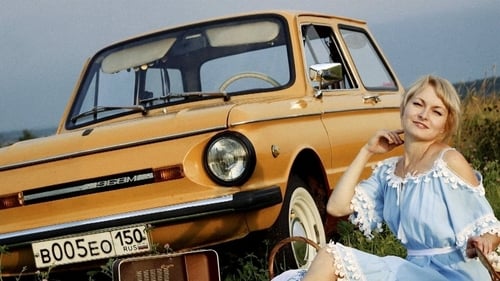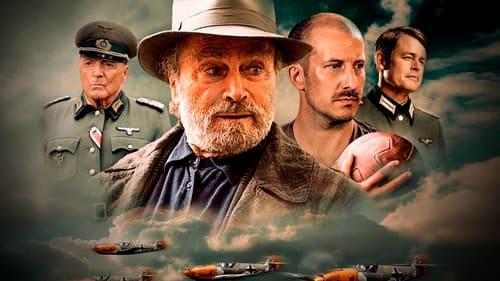Dalibor Grubačević
Рождение : 1975-01-09,
История
Dalibor Grubacevic is an award-winning Croatian composer of film & classical music. He has received several major professional awards in his country (the 2013 Porin in the Best Theatrical, Film, and/or TV Soundtrack category, for his music for the documentary series In Search of Marco Polo, and the Best Film Music award at the 19th Days of Croatian Cinema festival, for his music for the Nenad Puhovski documentary (Together). He is also a multifaceted artist of eclectic musical interests, whose work is best described by the contradictory label of an "unclassical classicist." In his composition, he uses classical orchestration combined with electronic sounds and instrumentation. He is a full member of the Croatian Composers' Society (HDS).

Music
Based on a true story of a meeting in June 1945 between two powerful men with very opposite philosophies and perspectives on the future of their country.

Music
A cinematic, character-driven insight to what it meant to produce and to own a car in communist times: the Socialist propaganda dreams and the hard reality of living that dream. The freedom that these slow and clumsy vehicles were giving to their owners; the cars as an instrument in the Cold War battle; legends and homemade tune-ups as an attempt to stand at least a little bit off the crowd.

Music
Весна 1944-го. В качестве подарка на день рождения Гитлера нацисты решают устроить футбольный матч между заключенными концлагеря и элитной немецкой командой. Только вот нацистам невдомек, что заключенные хотят одержать победу любой ценой.

Music
The rivers of Croatia are unique within Europe, as their ecosystems provide a stability to the processes of nature. However, the wildlife diversity is threatened as human activity encroaches on their fragile wilderness. This film follows the meandering lowland rivers which drain into the vast floodplains, photographs the mighty cascading waterfalls and frames the picturesque warm, limestone springs and fertile landscape of the Karlovac region. Our camera flies across the interior valleys or 'Karst Polje' which form shallow basins for the annual rainfall that swell the underground waterways to resurface as gentle rivers and streams many kilometres away.We also see majestic Adriatic rivers flow to meet the sea, through the fast moving estuaries of the great Zrmanja canyon or through the mighty Neretva delta.

Music
TV miniseries "More than words explores the possibilities and ways of behavior in non-verbal communication, primarily movements, gestures and ways of expression, but also the causes and roots of their origin. The series also explores the most interesting changes in the development of different cultures, including tattooing, scarring and body painting. Series also deal with the language of deaf and blind people, different universal languages, laughter, whistling and other peripheral phenomena associated with non-verbal communication. It also answers the questions does politicians think what they say, do suspects lie to the police or the court and how their body language reveals them..

Music
Alvin signed a book deal for a book depicting love in modern age based on his own experiences. But he did not count on the fact that return to those experiences hurts.

Music
Shocking, intimate and moving documentary "Sve je bio dobar san" ("It Was All Just a Good Dream: the Frenchman from Vukowar ") examines the events from the time of the war in Croatia and the arrival of the young French volunteer Jean-Michel Nicolier in Croatia.

Music
Crossword about seven interconnected stories of love, friendship, affection, guns, Balkan, stupidity and people caught in the moment.

Music
The war has ended. Villages of Bosnian Croats have been destroyed, and they are living in the homes of the Croatian Serbs. An old man, a Bosnian Croat, disappears. A policeman Filip, himself living in a Serbian home, investigates the case uninterestedly. Through the relationship with his father, Filip tries to understand the motives of the missing old man. As the film moves towards the end, Filip’s investigation becomes more and more personal.

Music
The most popular children's magazine in Yugoslavia was called Modra lasta (Blue Swallow). In 1969, it created Lastan. For hundreds of thousands of children Lastan was a mythical hero who helped unhappy and confused little souls. Each child imagined him differently and felt confident to share with him what they could not confess to anyone else: Dear Lastan, I kissed him, am I pregnant?; Dear Lastan, I fell in love with a boy from my class... For decades Lastan was a legend and the best kept secret in journalism. This film, for the first time after almost five decades, reveals his true identity.

Music
In 1900 the young Eduard Penkala arrived in Zagreb, then a town of about 60,000 inhabitants in all. Born of Polish and Czech origins in what is now Slovakia, he soon showed solidarity with his new fellow citizens, due to the political troubles. A chemist by profession, he invented over 80 patents in various fields: from a hot water bottle, a precursor of the vacuum flask and a rotating toothbrush to medicines, detergents, insecticides, a brake system, the first anode battery, a compound for gramophone records and a fountain pen. 45 years before Sir Christopher Cockerell and his hovercraft, he came up with a craft that floated on air, and the principles of the helicopter. Croats were indebted to him for his patriotism, his invention and his construction of the first domestic aircraft, only a few years after the Wright brothers, as well as his role in the industrial development of the country in the early 20th century.

Music
By filming on the actual locations traversed by Marco Polo, the series brings to life the authenticity of the local peoples from the standpoints of ethnology, historiography, culture and economics. We follow the exact route depicted in his book, Il millione, documenting the peoples, customs and cultures along the way to bring into sharp relief the cultural differences within the Asian mainland. Viewers are introduced to their development, becoming familiar with three completely different and, to us, relatively unknown spheres of civilisation and religion - Arabic Islam, Indian Hinduism and Oriental Buddhism. The host takes us through regions and cultures that may seem exotic - and, at times,dreamlike - in our search for the evidence of Marco Polo's passage.

Music
This is a story of the Croatian journalist Sinisa Glavasevic, the Croatian Radio station in Vukovar and sufferings of all Vukovar's inhabitants during the siege. At the same time this is also an archetypal story of love for one's own hometown, of integrity and responsibility of the individual who, at the hardest trials of his own conscience and responsibility, chooses to take the more difficult path, in circumstances where others - the average and the conformist - abandon ship. Sinisa decided to stay.

Music
This TV series follows the life of Andrija Hebrang (1899-1949), a Croatian and Yugoslav communist politician. A member of the Communist Party of Yugoslavia until his dismissal, he served as the 4th Secretary of the Central Committee of the Communist Party of Croatia.

Music
Love has probably never been so commercialized and falsely portrayed as today. It became a commodity that everybody can afford. However, very often the real picture is something completely different.This film tells about this different picture.The film "Together" tells about love relationships that encounter difficulties. Those are real difficulties that test not only the relationship but very often also the destinies of the persons involved.

Music
After Liptus arrives in a small village from the city, he calls his best friends, Miron and Melita, on winter holidays in Kopacevo. That same night, while they are all sleeping cozily, from their deep sleep Miron and Melita are woken by the disturbing sounds of villagers, carrying flares and disappearing into the darkness at the end of the street. At the docks, they find Halasz, a boy known for his bravery. He is cold, pale from shock, and babbling a white ghost. While most of the villagers don't believe Halasz's story, older citizens recall a long time ago when a forgotten spirit would scare people at night in dark and foggy swamps. Everyone locks themselves in their houses and Halasz ends up in a hospital where the doctors can't help him. Miron, Liptus, and Melita, now alone, take matters into their own hands, revealing the secret of the ghost and saving their friend.

Music
The main protagonist, Dara, lives with her husband, Rade Mitrović, in the vicinity of Obrovac, an area of typical Croatian rocky ground. They are the last authentic people of the area. He carves in the old-fashioned way, while she takes her flock of sheep and goats to graze in a pasture at the time when there is possibility of her flock being attacked by hungry wolves. She is very skilled in leading the flock, her dogs, in a special way. By the dog's behavior she knows that wolves are approaching and it enables her to save the flock, which is far from an easy task. This film follows the main protagonist's efforts to track down a lost sheep. She does this with careful investigation of all the relevant tracks of the lost sheep and despite sacrificing the time to do her household chores. This poetical documentary about eternal fight between good and wrong makes human existence uniquely miraculous.






